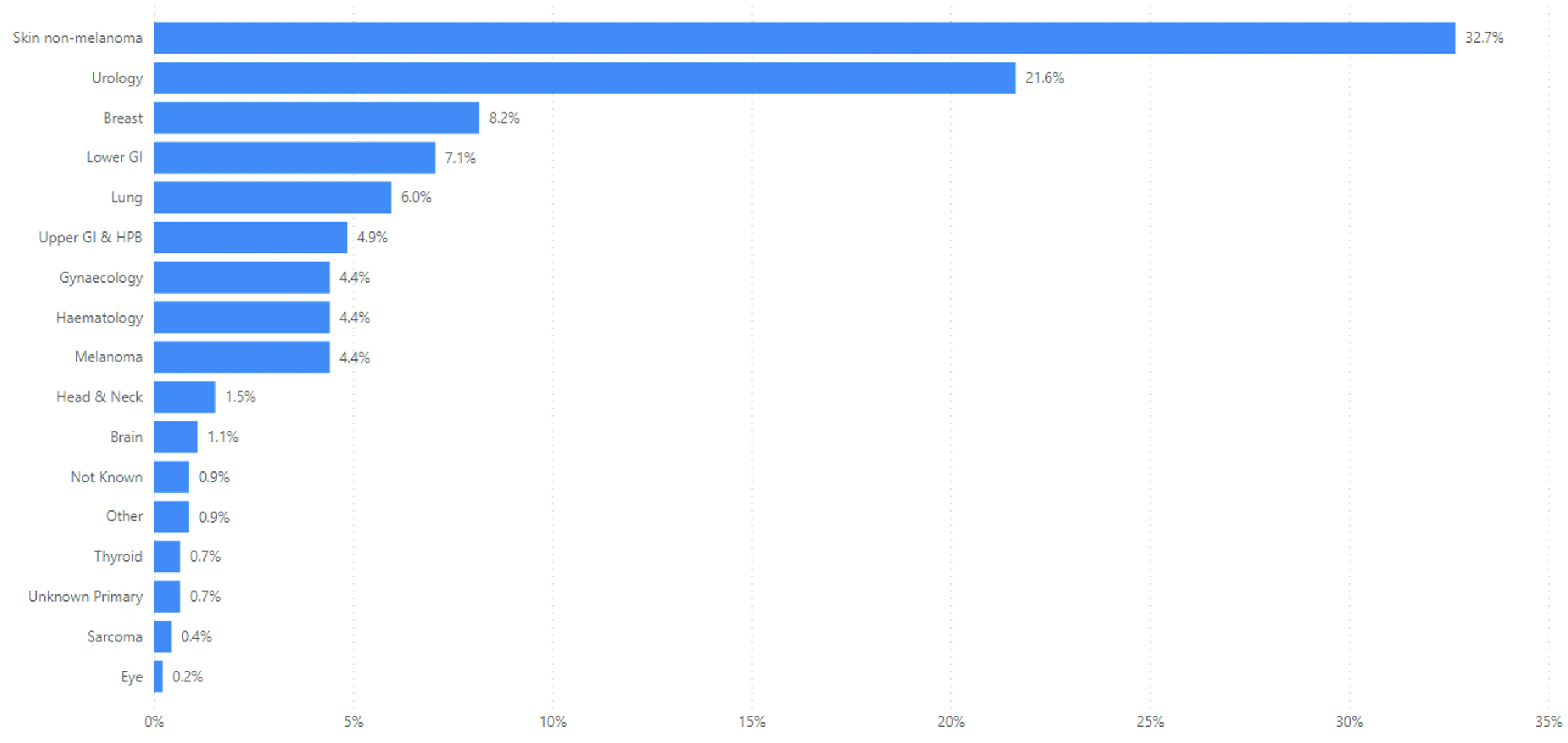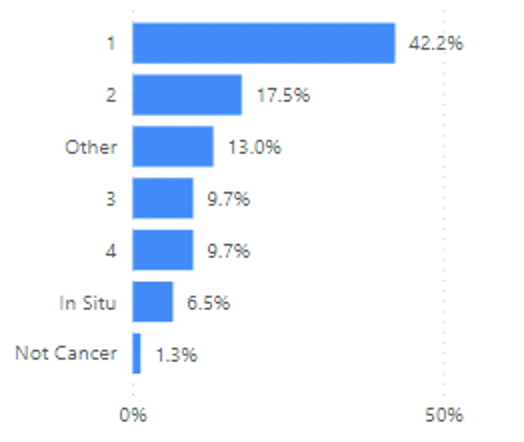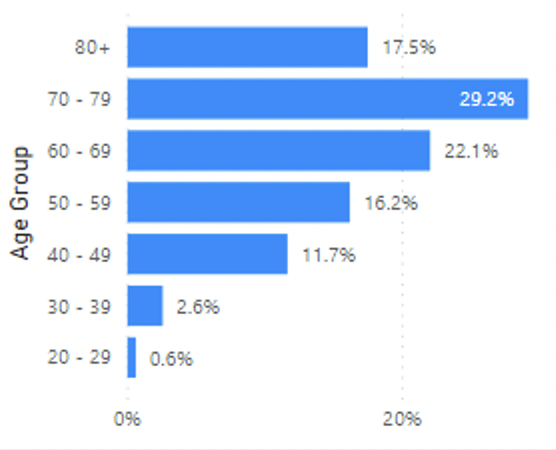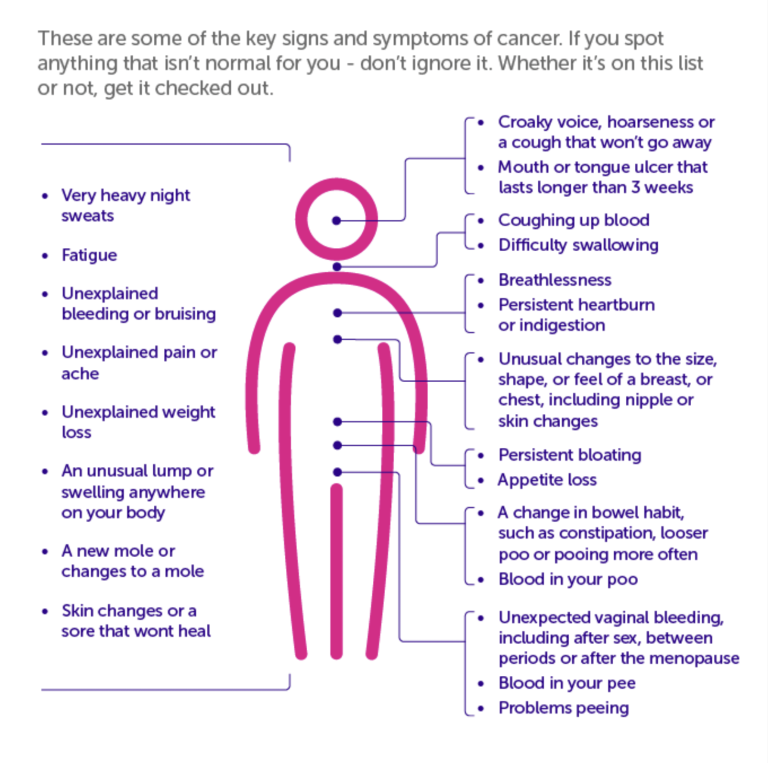Cancer is a leading cause of death with an estimated 10 million deaths worldwide in 2020. Breast, lung, bowel and prostate are the most common causes of cancer death worldwide, accounting for more than four in ten of all cancer deaths (Cancer Research UK, 2023). Between 30 and 50% of cancers can currently be prevented by avoiding risk factor and implementing evidence based prevention strategies (World Health Organisation, 2023).
The risk of developing certain types of cancer can be reduced by managing lifestyle factors, attending screening appointments and ensuring your immunisations are up to date.
There are various steps you can take towards following a healthy lifestyle and reducing your risk for developing certain types of cancer. These include :
Cancer incidence in Gibraltar
Figure 1: Patients newly diagnosed with cancer in 2023, by primary tumour group, at St. Bernard’s Hospital.

In 2023, the most commonly diagnosed cancers among new patients at St. Bernard’s hospital include:
- Skin (non-melanoma)
- Urological
- Breast
- Lower gastrointestinal (Colon & rectal)
- Lung
These findings are comparable with the United Kingdom, where the most common cancers include breast, lung, prostate (urology) and bowel (Cancer Research UK, 2023).
Globally, breast cancer is the most prevalent cancer. Breast cancer is the most common cancer in females in the UK and accounts for 15% of all new UK cancer cases (2016-2018) (Cancer Research UK, 2023).
Skin (non-melanoma) made up 32.7% of new cancer cases in 2023. Cases of non-melanoma skin cancer have increased locally in recent years. Changes in reporting mean that skin cancer has only recently been captured in cancer data. As a result, skin cancer – non-melanoma has become one of the top five reported cancers since 2022. Globally, the majority of superficial skin cancers are not captured in cancer registries because most cases are treated in primary care and have a good prognosis.
Additional data investigating melanoma skin cancer is available on our JSNA sun safety page.
Figure 2: Patients diagnosed by stage at diagnosis – St. Bernard’s Hospital, 2023.

Diagnosing cancer at its earliest stages provides the best chance for successful treatment and outcomes. In 2023, 42.2% of cancer cases were diagnosed at stage 1. 6.5% of cases were diagnosed in situ, which means there are abnormal cells present, this is also sometimes known as stage 0. For certain types of cancer, attending screening appointments can help detect cancer at an early stage before symptoms appear. It is important to be aware of any new or worrying symptoms. Although it’s unlikely to be cancer, it’s important to speak to your GP so they can investigate. Finding cancer early means it’s easier to treat.
Figure 3 : Patients newly diagnosed with cancer at St. Bernard’s Hospital, by age group, 2023.

Of those who have received a new cancer diagnosis at St. Bernard’s Hospital in 2023, 29.2% were aged between 70-79 years. Of those with a new cancer diagnosis, 0.6% were aged 20-29 years.
The proportion of individuals diagnosed with cancer increases with age, between the age-groups of 40-49 up to 70-79 years.
17.5% of those newly diagnosed with cancer were aged 80+ years.
Signs and Symptoms
Figure 4: Potential signs of cancer. Source: Cancer Research UK.
Useful information & Local Cancer resources
Page last reviewed : January 2024


